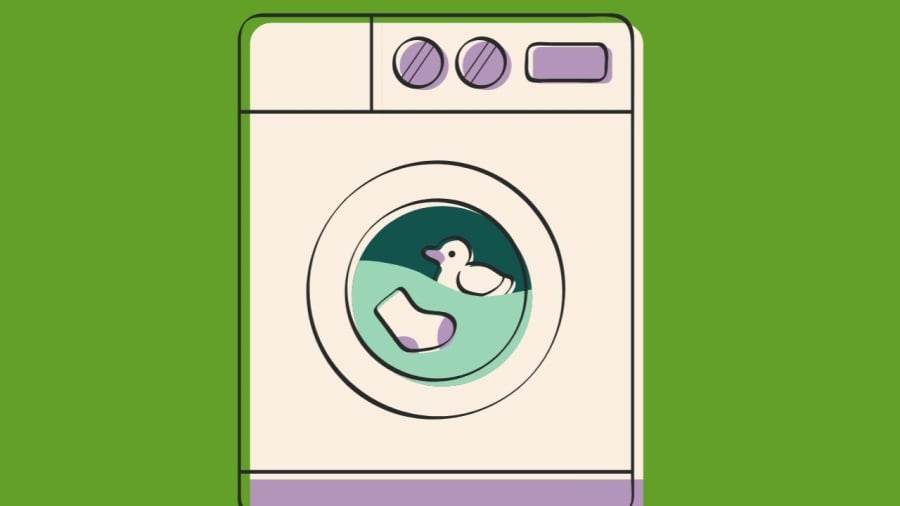There are some clever ways to save money in our daily routines that many people may not be aware of.
Ways to Use Washing Machines and Dryers Efficiently
Washing machines and dryers are common household appliances today. They can consume a significant amount of energy and water if not used properly. With electricity costs rising, it’s essential to be mindful of how we use these appliances. To save on utility bills, sort your laundry, wait until you have a full load before running the machine, and select the appropriate washing mode for each cycle. These simple steps will reduce washing time and lower your electricity and water expenses.
Additionally, a small detail that makes a big difference is to wash your clothes with cold or warm water instead of hot water. This simple change can help you save a considerable amount on your utility bills.

Using Washing Machines Efficiently Can Save Water and Electricity
Reduce Shopping Trips
Instead of shopping every day, plan your meals and create a shopping list for the week or a few days in advance. This reduces transportation costs, saves time, and prevents you from buying unnecessary snacks or excess food. The fewer times you go to the store, the less likely you are to be tempted by impulse purchases.
Break the Snacking Habit
Snacking is not only unhealthy but also expensive. By breaking this habit, you’ll make healthier choices, reduce the fear of weight gain or health issues, and save money.
Reuse and Repurpose Instead of Buying New
Before rushing to buy something new, consider if you can reuse or repurpose what you already have. For example, a broken bucket can be used for planting, and old chopsticks can be turned into stakes for your houseplants. When it comes to clothing, instead of always buying new items, learn to mix and match your existing wardrobe to create unique and cost-effective outfits.

Mix and Match Your Wardrobe to Save Money and Stay Stylish
Conserving Personal Care Products
Make the most of your cosmetics and personal care products. For example, when your cream or toothpaste tube is almost empty, cut it open to access the remaining product. You can also reuse empty essential oil bottles to freshen up your wardrobe or linen closet.
Cooking at Home and in Moderate Amounts
Cooking at home is a great way to save money and ensure the safety of your food. Prepare moderate portions to avoid waste and overeating. Avoid the habit of frequently dining out or ordering takeout. Cooking at home instead of ordering in can significantly reduce your expenses. It also gives you better control over your diet, helping you maintain a healthy weight.
Always Carry a Water Bottle When Out and About
Bringing your water bottle when you leave the house ensures you stay hydrated, provides immediate access to water, keeps your skin moisturized, and is a healthier option than buying drinks from street vendors. It’s also a cost-saving measure.
Wear High Heels When Shopping
When you go shopping, it’s easy to get tempted by promotions and special offers. Wearing high heels will make your feet tired faster, encouraging you to head home sooner and reducing the likelihood of unnecessary purchases. It also helps you avoid buying snacks and promotional items that you might not need and could end up wasting money on.
Hunt for Sales
If there’s something you want to buy, exercise patience and wait for a sale. However, don’t buy something just because it’s on sale. Assess whether you truly need it, and if so, wait for a price reduction.































